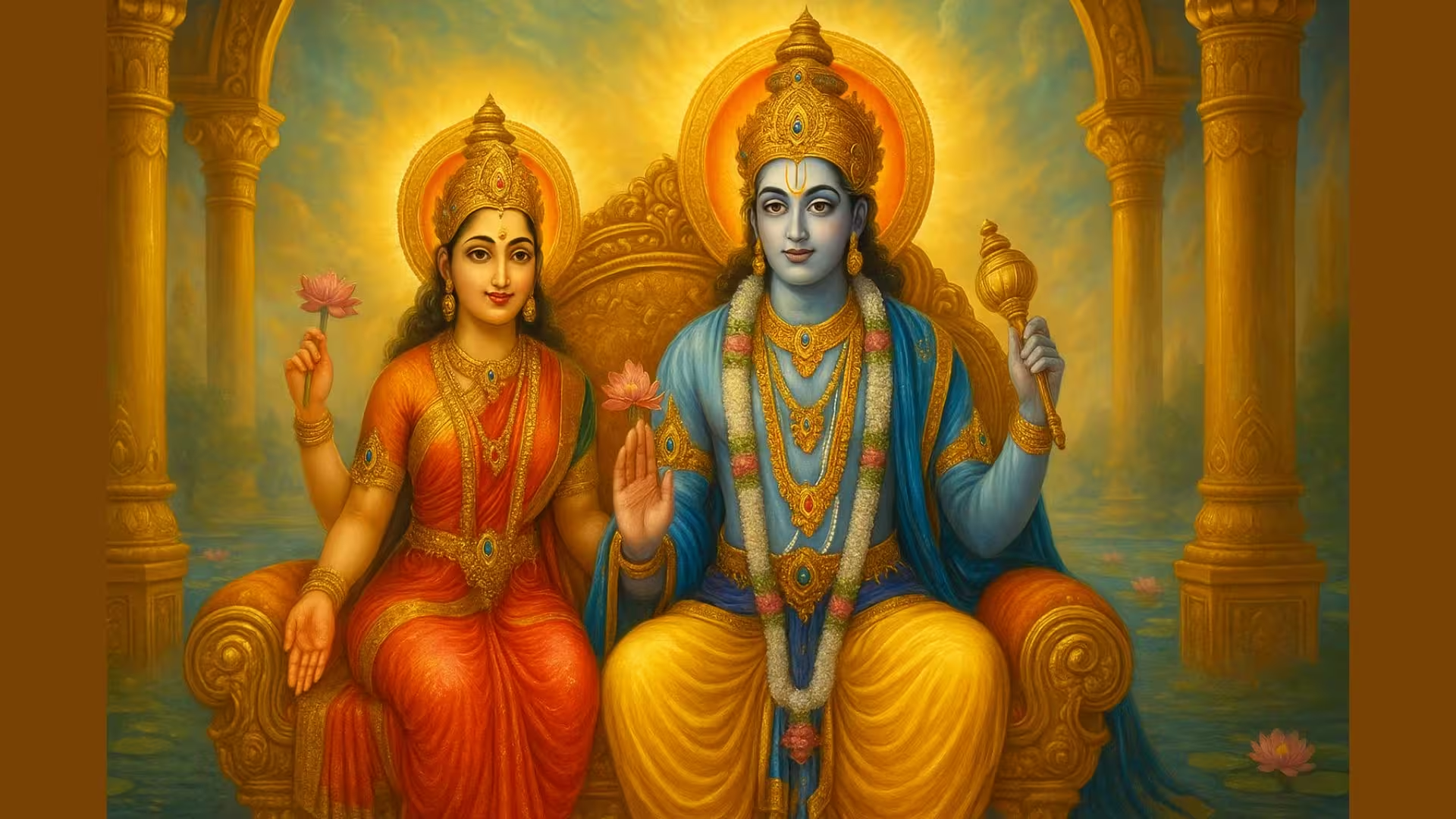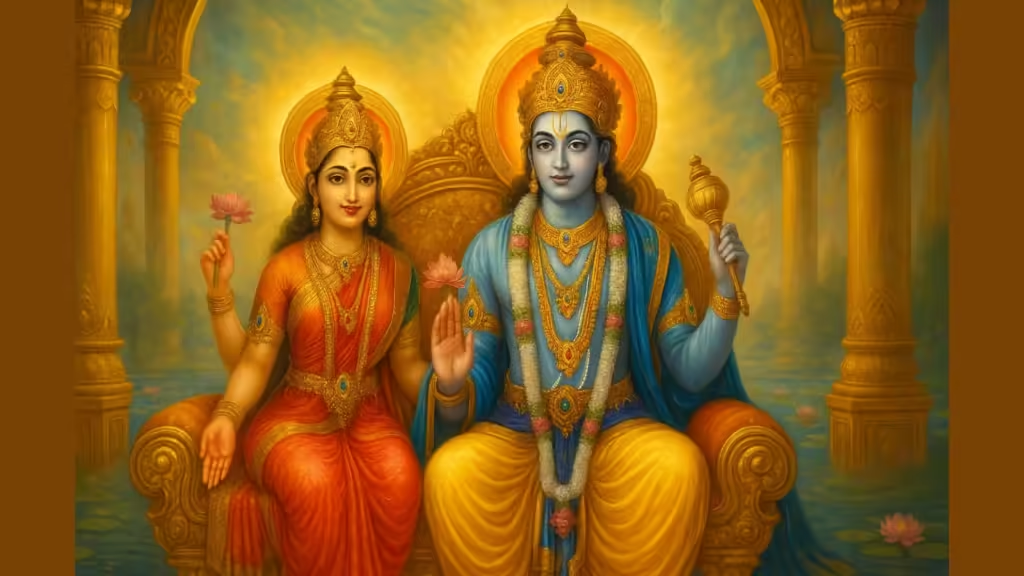
Table of Contents
Apara Ekadashi 2025
According to the Hindu calendar, the Ekadashi that falls in the Krishna Paksha (waning phase of the moon) of the Jyeshtha month is known as Apara Ekadashi. On this sacred day, worshipping Lord Vishnu and donating to the poor, needy, and helpless is believed to remove all sorrows and pain from the devotee’s life while offering relief from ongoing life challenges.
Performing puja and religious rituals on Apara Ekadashi is considered extremely beneficial. Worshipping Lord Vishnu and Goddess Lakshmi on this day brings their blessings, and it is believed that Lord Vishnu grants devotees a place in Vaikuntha (his divine abode). Special worship of Lord Trivikrama (Vishnu) on this day is said to increase one’s fame, virtue, and wealth and liberate from negative energies or ghostly existences. Rituals involving sandalwood, camphor, and Ganga water are considered highly auspicious.
Apara Ekadashi is observed with great devotion in the Hindu tradition. It is known for destroying sins, uplifting the soul, and guiding devotees toward spiritual growth. In 2025, Apara Ekadashi will be observed on Friday, May 23, 2025.
Apara Ekadashi 2025: Date, Tithi, and Parana Timing
- Date of Apara Ekadashi Vrat: Friday, May 23, 2025
- Ekadashi Tithi Begins: May 23 at 01:12 AM
- Ekadashi Tithi Ends: May 24 at 10:29 AM
- Parana (Breaking the Fast) Time: Saturday, May 24 from 05:29 AM to 08:11 AM
Note: Parana should be done after sunrise and within the Dwadashi Tithi.
Meaning and Spiritual Significance of Apara Ekadashi
The word ‘Apara’ means ‘limitless’, symbolizing the immense spiritual merit one can attain by observing this fast. In some regions, it is also called ‘Achala Ekadashi’. This Ekadashi is especially important for those seeking liberation (moksha) or wishing to atone for their past sins. According to scriptures, fasting on this day can absolve even grave sins such as Brahma-hatya (killing a Brahmin), theft, falsehood, and betrayal.
Rituals and Traditions of Apara Ekadashi
Morning Rituals:
- Wake up before sunrise and bathe in a holy river or with water mixed with Ganga Jal.
- Clean the prayer area and decorate it with flowers and lamps.
- Install an idol or picture of Lord Vishnu and offer Tulsi leaves, flowers, incense, and lamps.
Daytime Rituals:
- Observe a complete fast (nirjala) or perform a partial fast (phalahar) with fruits and milk.
- Avoid lying, slander, anger, and all forms of violence.
- Recite Vishnu Sahasranama and other sacred hymns.
Evening Rituals:
- Light a ghee lamp in front of the deity.
- Meditate, sing devotional songs, or read the Apara Ekadashi Vrat Katha (vow story).
Parana (Breaking the Fast):
- On the next day, offer food to Brahmins and perform Parana during the prescribed time.
- Break the fast with fruits, milk, or light sattvic food.
What to Eat and Avoid During Apara Ekadashi Vrat
Permitted Foods:
- Fruits like banana, apple, papaya
- Milk, curd, buttermilk
- Dry fruits and nuts
- Sago (sabudana), water chestnut flour (singhara atta), amaranth flour (rajgira atta)
- Rock salt (sendha namak)
Foods to Avoid:
- Grains and pulses (rice, wheat, lentils, etc.)
- Onion and garlic
- Meat, fish, eggs
- Alcohol and tobacco
- Fried or processed food
Spiritual and Health Benefits of Apara Ekadashi Vrat
- Liberation from sins of past and present lives
- Spiritual growth and blessings of Lord Vishnu
- Improved mental clarity, patience, and emotional balance
- Detoxification of the body through fasting
- Opens the path to liberation (moksha)
Important Mantras and Prayers for Apara Ekadashi
1. Vishnu Mantra
“Om Namo Bhagavate Vasudevaya”
Meaning: I bow to Lord Vasudeva (Vishnu), the sustainer of the universe.
2. Vishnu Gayatri Mantra
“Om Narayanaya Vidmahe
Vasudevaya Dhimahi
Tanno Vishnuh Prachodayat”
Meaning: We meditate on Lord Narayana, the son of Vasudeva. May that Vishnu inspire and guide us.
Frequently Asked Questions (FAQs)
1. Can I drink tea during Apara Ekadashi fast?
If you are observing a phalahar fast, you may consume tea without milk. However, nirjala fast forbids all liquids.
2. Is staying awake all night necessary on Ekadashi?
Staying awake is considered spiritually beneficial, but if health does not permit, one may engage in chanting and meditation instead.
3. Can pregnant women observe this fast?
Pregnant women should avoid strict fasting and consult their doctor before observing any vrat.
4. What happens if Parana is done late?
If Parana is delayed beyond the recommended time, the spiritual merit of the fast may be lost. It must be done within the Dwadashi period.
5. Is Apara Ekadashi the same as Nirjala Ekadashi?
No. Nirjala Ekadashi comes after Apara Ekadashi and is known for complete waterless fasting.
